
Allied Health courses in Goulburn
Course providers in Goulburn
The following providers offer Allied Health courses in Goulburn.



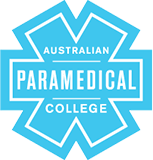








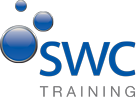
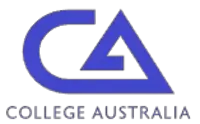






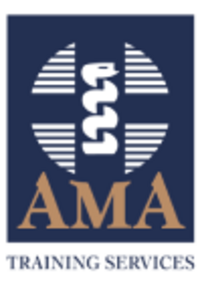









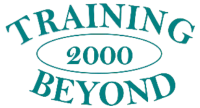



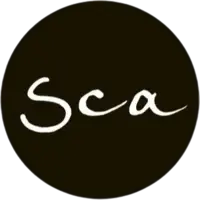








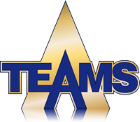





Career Pathfinder
Skills shortages + AI Exposure
Discover in-demand careers and understand how each role may be impacted by AI and automation.
- See in-demand occupations across Australia
- Check AI Exposure ratings
- Compare training duration and average income
Common questions
Occupational therapists help patients perform tasks in daily life, while physiotherapists help patients improve their movement, strength and function. The term occupation refers to everyday life tasks, while physiotherapy refers to physical therapy. Both are science-based allied health roles that aim to improve quality of life through prevention, maintenance and treatment.
 Stephen Charlton
Stephen Charlton
You can become qualified to work as an occupational therapist by completing one of the following degrees, depending on your educational pathway:
- Master of Occupational Therapy (postgraduate degree)
Average duration: 24 months - Bachelor of Occupational Therapy (Honours)
Average duration: 4 years - Bachelor of Occupational Therapy
Average duration: 4 years
 Stephen Charlton
Stephen Charlton
You can become qualified to work as a physiotherapist by completing one of the following degrees, depending on your educational pathway:
- Doctor of Physiotherapy (postgraduate degree)
Average duration: 3 years - Master of Physiotherapy (postgraduate degree)
Average duration: 24 months - Bachelor of Physiotherapy (Honours)
Average duration: 4 years - Bachelor of Physiotherapy
Average duration: 4 years
 Stephen Charlton
Stephen Charlton
Yes, you need to complete an accredited degree to work legally as an occupational therapist or physiotherapist in Australia. The two core pathways are completing a bachelor’s degree or a postgraduate degree. The Occupational Therapy Council of Australia and Australian Physiotherapy Council are responsible for accrediting such courses.
 Stephen Charlton
Stephen Charlton
Yes, overseas-qualified practitioners can work in Australia by registering with the Occupational Therapy Board of Australia or Physiotherapy Board of Australia. Practitioners who are currently registered with the Occupational Therapy Board of New Zealand or Physiotherapy Board of New Zealand can apply directly for Australian registration. Other overseas-qualified practitioners have to fulfil the requirements listed on the relevant webpages of the Occupational Therapy Board of Australia and Physiotherapy Board of Australia.
 Stephen Charlton
Stephen Charlton
If you have already completed an approved degree in a different discipline, you can gain an accredited postgraduate degree to become qualified to work as an occupational therapist or physiotherapist. Examples of such degrees are a Master of Occupational Therapy, Master of Physiotherapy and Doctor of Physiotherapy. Postgraduate degrees in these fields may have additional entry requirements, including but not limited to health-related prerequisite subjects.
 Stephen Charlton
Stephen Charlton
In some cases, completing vocational education and training (VET) in a related discipline can allow you to meet the entry requirements for a bachelor’s degree in these fields. Entry requirements vary between educational providers. Some providers offer a VET entry pathway with a minimum of a Certificate IV, but others require a minimum of a diploma or advanced diploma. Some providers do not offer a VET pathway for these courses at all. Therefore, it’s wise to confirm the entry requirements for your desired bachelor’s degree before starting a VET course.
 Stephen Charlton
Stephen Charlton
In addition to completing an accredited degree, occupational therapists and physiotherapists will need to register with the Occupational Therapy Board of Australia or Physiotherapy Board of Australia to work in Australia. The Australian Health Practitioner Regulation Agency (AHPRA) administers practitioner registration on behalf of these boards. There are different requirements to gain registration for Australian-qualified practitioners, New Zealand-registered practitioners, and other overseas-qualified practitioners.
 Stephen Charlton
Stephen Charlton
Career paths for these professions include independent contracting, starting a practice, working in community care, paediatrics, mental health, rehabilitation, disability, medical or aged care sectors).
 Stephen Charlton
Stephen Charlton
Jobs and Skills Australia reports that the median full-time weekly earnings for occupational therapists and physiotherapists in 2024 are $1,526 and $1,710, respectively. These figures can be contrasted with Australian workers of all occupations, who earn a median full-time weekly income of $1,697.
 Stephen Charlton
Stephen Charlton
There is a significant demand for occupational therapists across Australia. Jobs and Skills Australia’s Occupation Shortage List indicates that the labour market had a shortage of occupational therapists across all states and territories from 2022 to 2024.
 Stephen Charlton
Stephen Charlton
There is substantial demand for physiotherapists in Australia. Jobs and Skills Australia’s Occupation Shortage List indicates that the labour market experienced a shortage of occupational therapists and physiotherapists in most states and territories from 2022 to 2024.
 Stephen Charlton
Stephen Charlton
Working as an occupational therapist or physiotherapist comes with the satisfaction of directly helping to improve patients’ quality of life. Furthermore, the job market is promising, as Jobs and Skills Australia reports there is significant labour market demand for both professions. The future outlook is also positive, as Jobs and Skills Australia reports that the annual employment growth in 2024 for occupational therapists and physiotherapists is 2,200 and 4,100, respectively.
 Stephen Charlton
Stephen Charlton
Further reading


What can you do with a Certificate IV in Allied Health Assistance (Physiotherapy)?
3rd March 2022
What can you do with a Certificate III in Allied Health Assistance?
8th January 2020All courses
- HLT33021 Certificate III in Allied Health Assistance
- HLT47321 Certificate IV in Health Administration
- CHC43315 Certificate IV in Mental Health
- CHC53315 Diploma of Mental Health
- HLT52021 Diploma of Remedial Massage
- HLT41120 Certificate IV in Health Care
- HLT54121 Diploma of Nursing
- 22656VIC Advanced Diploma of Myotherapy
- Master of Social Work
- CHCGRP002 Plan and conduct group activities
- Bachelor of Clinical Exercise Physiology
- Bachelor of Social Work (Honours)
- Master of Global Public Health
- Bachelor of Biomedical and Exercise Science
- Bachelor of Occupational Therapy
- 11031NAT Course in Ear Wax Removal (Microsuction)
- Bachelor of Health Information Management
- Bachelor of Biomedical Science (Medical Science)
More about Allied Health courses
If you’re looking to pursue a career in the Allied Health sector, Goulburn offers a variety of courses to suit your needs, whether you’re a beginner or an experienced professional. With 17 Allied Health courses available, aspiring individuals can explore different pathways, including Vocational Education and Training (VET), Higher Education, and short courses. For those just starting their journey, the Assist Clients with Medication Skill Set CHCSS00070 and the Doctor of Medicine are excellent options to kickstart your education in Goulburn.
For experienced learners looking to advance their qualifications, Goulburn features a range of specialised courses, including the highly regarded Certificate IV in Mental Health CHC43315 and the Diploma of Mental Health CHC53315. Other advanced options include the Certificate IV in Allied Health Assistance HLT43021, as well as undergraduate and postgraduate degrees in fields like Occupational Therapy and Nursing. Whether you're interested in becoming a Mental Health Worker, Occupational Therapist, or Clinical Exercise Physiologist, the opportunities for development in Goulburn are vast.
The Allied Health field encompasses a variety of study areas, allowing you to tailor your education to your career aspirations. From Healthcare Support Services to Pharmacy, and even First Aid, you can focus on the disciplines that resonate with you. Goulburn also provides unique opportunities for students interested in Obstetrics and Gynaecology or those wanting to dip into Oncology and Radiography and Medical Imaging. Discover how these courses can pave the way for roles in both community and healthcare settings.
Investing in Allied Health education in Goulburn not only enhances your qualifications but opens the door to rewarding career possibilities. From aspiring nurses and social workers to those aiming to specialise in Massage, Dentistry, or Podiatry, you will find courses that meet all skill levels. With the right qualifications, you can become a valuable member of the healthcare community in Goulburn and beyond. Explore the complete list of Allied Health courses today and take the next step towards your career in health.
